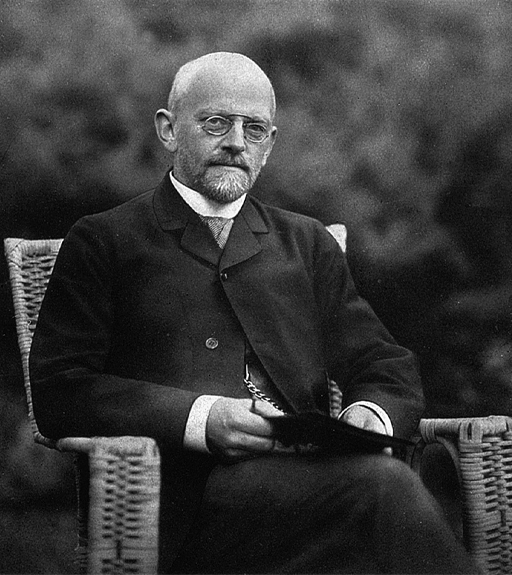2 Hilbert’s Infinite Hotel
Mathematician David Hilbert wanted to make the idea of infinity more accessible to the public. To do this, he devised the paradox of ‘Hilbert’s Infinite Hotel’. You could think of the motto of this hotel as ‘even when it is full, it always has room for you’.
Watch Video 2 which introduces the paradox.

Transcript: Video 2 60-Second Adventures in Thought: Hilbert’s Infinite Hotel
The paradox shows that infinity is somehow stretchable and squashable. As explained in the video, when the hotel is full, a room can always be found for a new guest. It’s simply a case of asking each guest to move up a room number. We know that every number has a successor – and only one. (Likewise, each successor room only has one predecessor – so two guests aren’t going to end up in the same room.) In mathematical terms it can be said that any number, n, is ‘mapped’ (more on this shortly) to the next number, n+1. Now the first room is empty, and the new guest can be accommodated here.
Indeed, infinitely many new guests can fit in the full hotel with no trouble! In this case, each guest is asked to move to the room which is double the room number they are currently in. Each number has one and only one number which is its double, so every guest will have somewhere to go. No two guests will end up in the same room here either, since every even number only has one number which is half its value. With this done, all the odd numbered rooms are now empty. There are infinitely many of these for the infinitely many new guests. In this case, it can be said that n is mapped to its double, 2n. You’ll look more closely at what this means in the next section.
There’s something else demonstrated by this argument: there are as many even numbers as there are counting numbers (1, 2, 3, …). There are not half as many, as you might expect! This may seem counter-intuitive. Imagine all these numbers laid out in two (infinitely long!) rows. You can ‘stretch out’ the counting numbers and match them up with the even numbers. Or you can ‘squash together’ the even numbers and match them up with the counting numbers. You will never reach a point where the numbers stop matching up. Of course, you would never complete this experiment if you tried it! Perhaps this is still a bit difficult to picture. Mathematical notation can help with that, as the next section will show.
Thinking about things like how many even numbers there are leads to a key question: how do you measure the size of something infinite?

